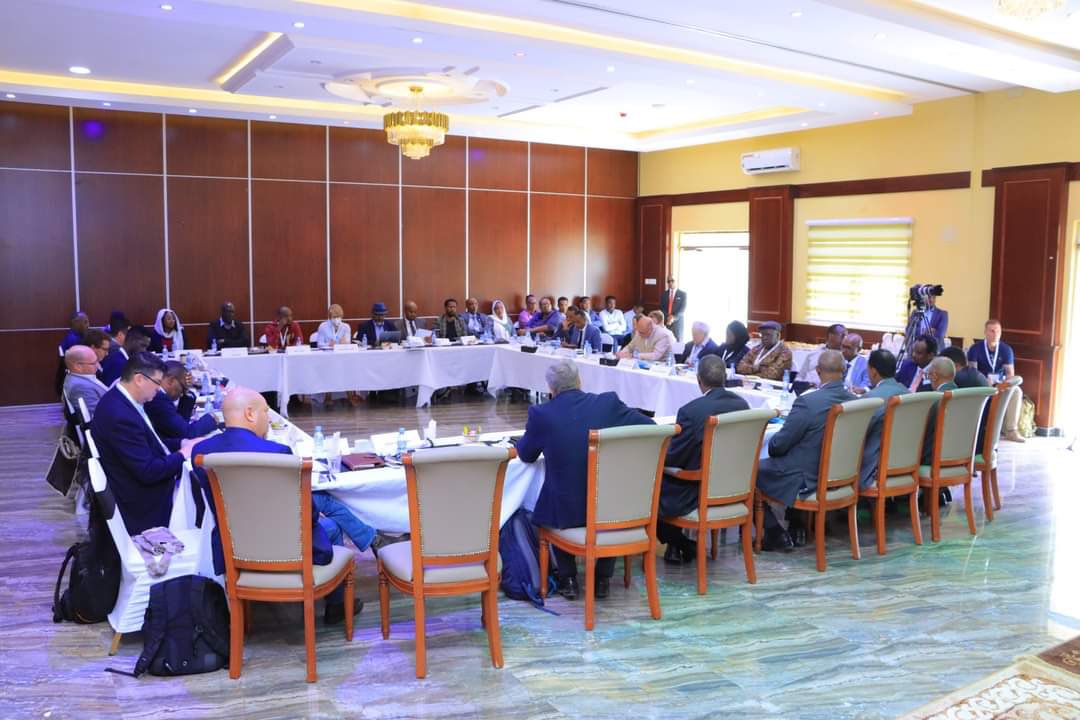The leader of Uganda’s leading opposition political party, National Unity Platform (NUP), Robert Kyagulanyi Ssentamu alias Bobi Wine, is participating in an international conference on peace and state-building taking place in Hargeisa, Somaliland’s Capital.
The two-day conference which aims at addressing issues and exchange views on contributory factors that affect security and state-building in Africa, kicked off on Saturday.
The dialogue which is organized by the Brenthurst Foundation led by Dr Greg Mills, brought together scholars, politicians, researchers, journalists and others from at least 17 (seventeen) countries.
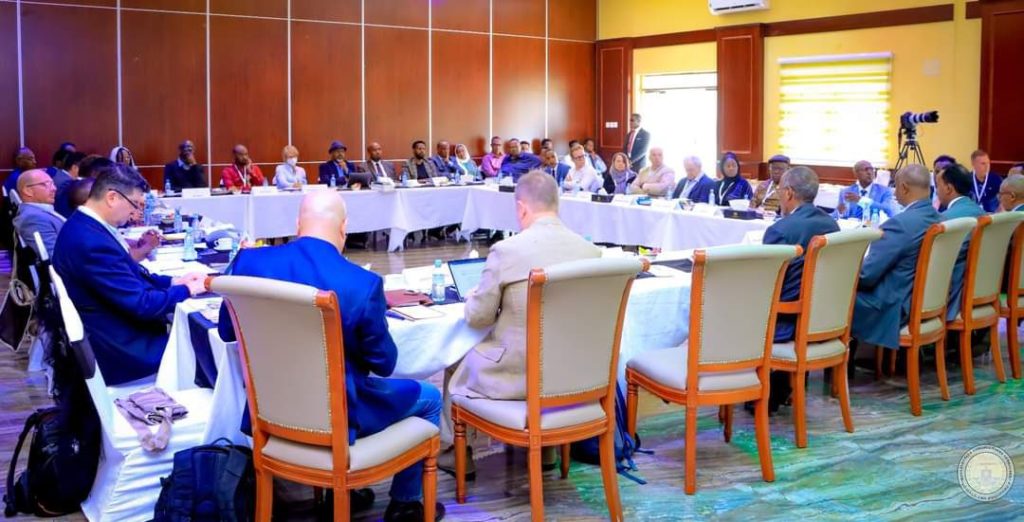
Prior to the official opening of the Conference, Bobi Wine and other participants toured Hargeisa City and visited Berbera port, Berbera International Airport and Wajaale, getting a glimpse of the rapid infrastructural developments currently taking place in Somaliland.
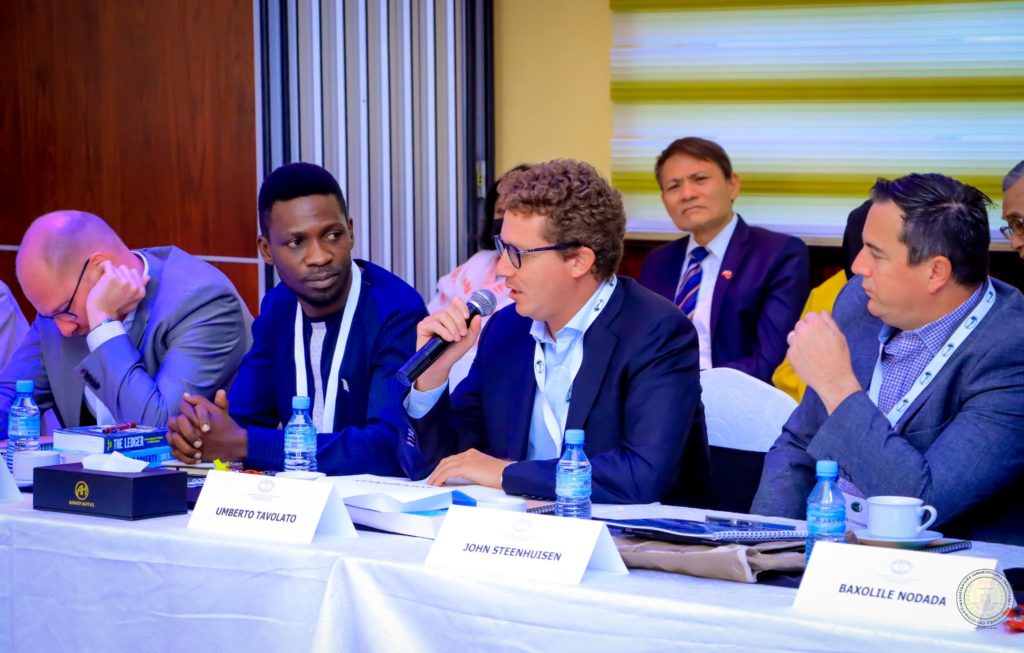
While opening the Conference, Somaliland’s President, Muse Bihi Abdi, noted that the decision to hold the dialogue in Hargeisa is a clear indication of the prevailing peace and stability in Somaliland and the confidence the World has in his country.
Also read: https://plusnews.ug/somaliland-unrecognized-nation-with-all-trappings-of-countryhood/
He said Somaliland’s journey to statehood was an arduous process but the determination of its people to establish their own state was so overpowering and transcended all obstacles.
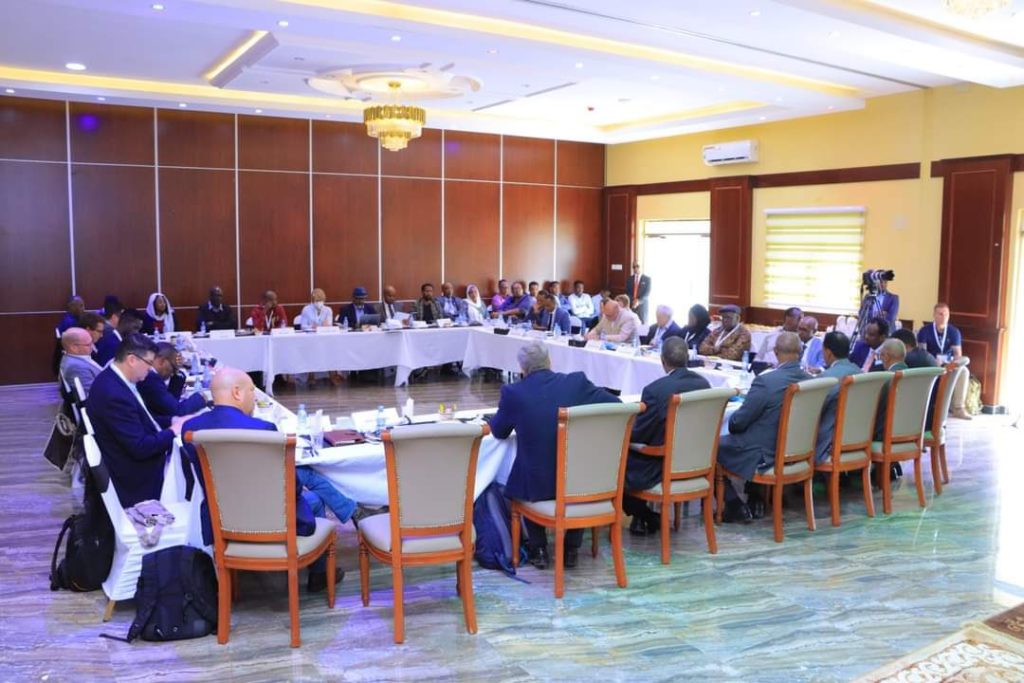
“Upon the liberation of our country from the tyranny of Siyad Barre regime, we inherited a war-ravaged country in which tens of thousands of our people had been killed, many thousands injured, and the main cities, Hargeisa and Burao, almost entirely destroyed. To fully grasp the horrors visited upon the cities of Somaliland, all you need to do is look today at Mariupol and other major cities of Ukraine,” said President Muse Bihi.
“Despite the infrastructure being destroyed and Somaliland’s territory extensively mined, millions of internally and externally displaced people were starting to return home and they needed support,” he added.
This prompted Mr Kyagulanyi, a sworn critic of the Ugandan leader, Yoweri Museveni, to ask President Muse Bihi how their liberation movement, the “SNM was able to hand over power to civilian rule, something that has eluded most African countries.”

According to Muse, during the struggle against Siyad Barre regime, Siyad Barre deliberately exploited clan divisions in an effort to retain his hold on power and that there were parts of Somaliland regions that did not support the SNM during the struggle against Siyad Barre regime.
The people in these areas, he says, were naturally wary. “Trust and confidence building was, therefore, essential and held the key to a lasting peace.”
“SNM prioritized reconciliation and peace building and therefore tasked the traditional elders with the responsibility to heal the rift among the Somaliland communities who were on the opposite side of the struggle against Siyad Barre regime. This strategy was pursued with vigor and established the foundation upon which the peace and stability of Somaliland stands on today,” Muse explained.
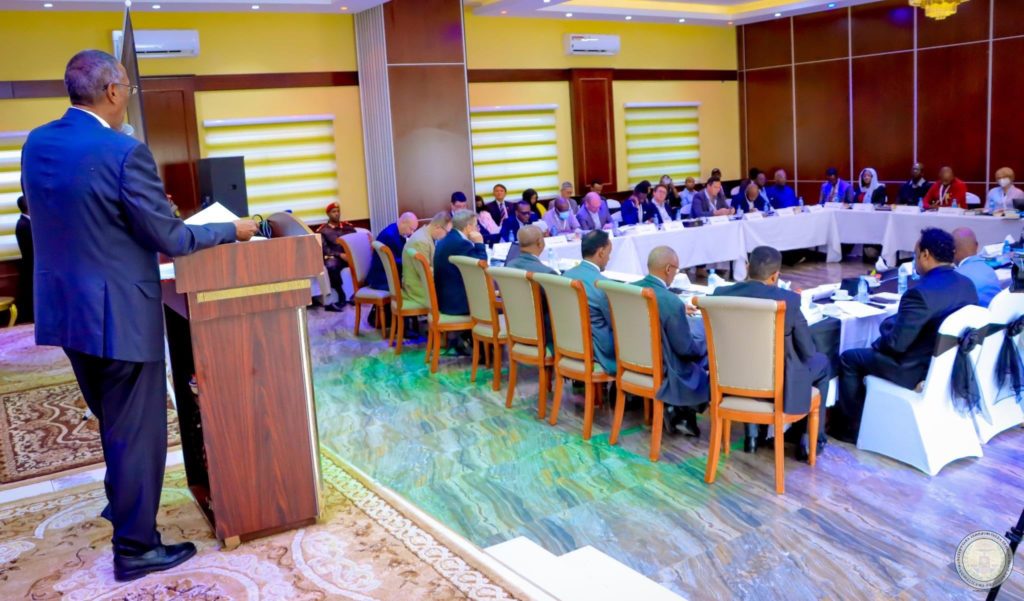
He says a series of localized peace meetings held, were instrumental in trust building, reconciliation and cemented peace among the people of Somaliland.
“It is often accepted that Somaliland has succeeded in terms of reconciliation and state-building largely due to the sustained focus on resolving issues at a community-level before attempting to tackle issues such as national government,” explained the President.
“Communities were to allowed to resolve immediate disputes and agree terms of future discussion before moving on to tackle issues of ongoing governance and national reconciliation,” he added.
Somaliland’s reconciliation and peace building process was largely homegrown, locally financed and organized as a result of initiatives taken by a diverse range of actors with broad support.
According to Muse, the democratic culture of SNM even before the liberation of the country played an important role in its acceptance to run the country only for two years.
During its time as a liberation front SNM had elected five Chairmen with each one succeeding his predecessor in a peaceful transfer of power. It had its Executive Committee which acted as a government and a central committee acting as parliament.
“It had a singular chain of command even though its armies were located in various parts of the country and were support logistically and financially by different communities,” he said.
“Immediately upon becoming the government, the SNM Government found itself in a dire financial situation. The communities that provided support to SNM during the struggle now needed support from the government. There was constant tension as the Government was unable to provide the basics services,” he added.
Somaliland is arguably the most democratic and politically stable nation in Africa.
The system of Somaliland governance has since evolved from a clan-based system to one of multi-party democracy. a new Constitution was approved by referendum on 31 May 2001 by 97.1% of voters, Somaliland has had five presidents since 1991, each one of them elected on a peaceful basis.
The last three were elected in a transparent, peaceful one person one vote democratic elections.
In addition to a peaceful process of presidential elections, successful elections have also been held for local governments (December 2002, November, 2012 and May, 2021 and the lower house of Parliament (September 2005 and May 2021).
The birth of Somaliland’s independence
Somaliland is the 12th African nation to become independent from the colonial with an official Royal Proclamation of her Majesty Queen Elizabeth II. This means Somaliland became independent way before 42 African countries.
Soon after the Somaliland independence from the British rule, 34 countries recognized our nation as an independent state, including members of the Security Council, but after only 5 days, our people decided to voluntarily unite with the next door Somalia when they received independence from Italy to create the Somali Republic.
The dream was to have a greater Somali Republic in the horn, waiting for other Somali inhabited territories including Djibouti, North Eastern Province of Kenya and Somali region of Ethiopia to join the Union and that’s the reason the Somalia Flag still have the White star at the middle with Five edges, each edge represents the 5 territories that Somali people permanently inhabit.

Unfortunately the first marriage between the first two Somali states failed. Although it was never legal and there was NO union act ratified by joint parliament, however, the union was entirely turbulent and unsatisfactory.
After 31 years of difficulties, injustice, inequalities, and prejudice, that union ended horribly with 11 years of War against Somalia’s military regime which claimed the lives of a quarter of a million of the Somaliland people after civilians were shelled and cities were bombed and leveled it to the ground by the military.
In 1991, Somalilanders defeated and destroyed the military deployed to their land by the military government, declaring their withdrawal from the failed union they have been part of, for more than 3 decades.
The aalso argue that it is the same Somaliland that has been recognized by 34 countries including permenant members of the security council, and one that received congratulatory notes from Her Majest Quees Elizabeth II, Christian Herter, the US secretary of state at that time and many other international leaders.
Many questions continue to linger as to why a nation with a functioning and forceful government which is democratically elected by the people, one with a permanent population of 5 million and the capacity to enter into relations with other states, as already witnessed, is taking too long to be recognized.

